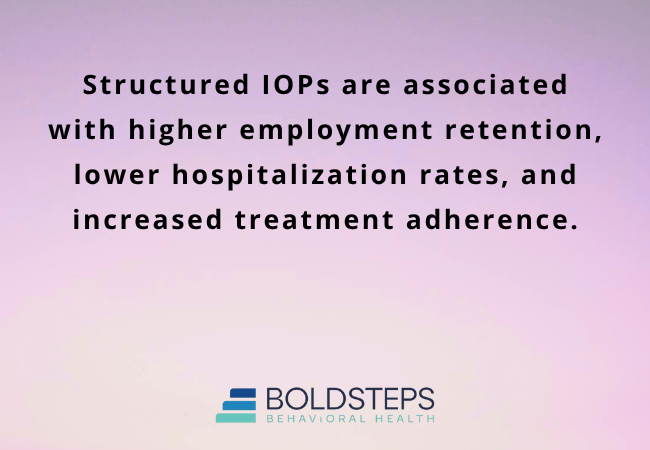When you’re struggling with mental health or substance use issues, choosing the right level of care is one of the most important steps in your recovery. For many, the decision comes down to two powerful but very different options: inpatient care and an Intensive Outpatient Program (IOP).
At Bold Steps NH, we help you make an informed choice based on your individual needs. With comprehensive options like our Intensive Outpatient Program in New Hampshire, you can access the care you need while maintaining critical aspects of your daily life.
What Is Inpatient Treatment and When Is It Necessary?
Inpatient care involves staying full-time in a residential or hospital-based setting. It’s ideal for:
- Individuals at risk of self-harm or suicide
- Those needing medical detox or 24/7 stabilization
- Patients with severe mental health symptoms that disrupt reality or safety
- People who’ve not responded to outpatient care and need immersive support
Inpatient treatment is highly structured, focusing on crisis stabilization, medication management, and immediate therapeutic intervention. It’s a crucial level of care—but it’s not always the right or only solution for everyone.
What Is an Intensive Outpatient Program (IOP)?
An IOP offers intensive treatment without requiring overnight stays. At Bold Steps NH, IOP includes:
- 3–5 sessions per week
- Each session lasting around 3 hours
- Individual therapy, group therapy, and family counseling
- Psychiatric care and medication management
- Skill-building for relapse prevention, coping, and stress management
It’s designed for individuals who need more than weekly therapy—but don’t require round-the-clock supervision.
Comparing IOP vs. Inpatient: Key Differences
| Feature | Inpatient Care | Intensive Outpatient Program (IOP) |
|---|---|---|
| Location | Onsite, 24/7 | Home-based with structured visits |
| Flexibility | Very limited | High—attend while living at home |
| Duration | 1–4 weeks typically | 4–12 weeks, flexible |
| Ideal for | Crisis stabilization | Continued recovery support |
| Cost | Higher (includes room, board) | Lower, often covered by insurance |
| Work/school participation | Not allowed | Often encouraged or accommodated |
Flexibility and Functionality: Real-Life Integration Through IOP
One of the most significant benefits of IOP is maintaining your daily life:
- Continue caring for children or elderly parents
- Keep your job or re-enter school
- Remain involved in family or relationship commitments
- Sleep in your own bed at night
Unlike inpatient care, IOP lets you practice coping strategies in real-time, with support and feedback built into your week.
Clinical Support Without Disruption: The Power of IOP
Despite its flexibility, IOP still provides robust clinical treatment:
- Licensed therapists lead all group and individual sessions
- Weekly psychiatric check-ins ensure medication effectiveness
- Peer support groups promote accountability
- Evidence-based therapies such as CBT, DBT, and trauma-informed care are integrated
You don’t have to sacrifice quality for accessibility—IOP gives you both.
Cost, Accessibility, and Insurance Coverage Benefits
Inpatient care can be costly due to the 24/7 staffing, accommodations, and medical supervision. IOP is typically:
- More affordable
- Approved by most insurance providers
- Flexible in schedule to accommodate people who can’t afford time off work or responsibilities
At Bold Steps NH, we work directly with your insurer to maximize coverage and remove financial barriers.
The Role of IOP in Long-Term Recovery and Stability
IOP is not just a stopgap—it’s a strategic phase of healing. It provides:
- Structure for daily consistency
- Therapeutic community engagement
- Skill development for handling stress, cravings, and emotional triggers
Because you apply what you learn in real life, the gains made in IOP are often more sustainable than those made in isolated inpatient settings.
When Inpatient Care Is the Better Choice
There are times when IOP alone isn’t enough. Inpatient care is necessary when:
- You’re actively suicidal or severely dissociated
- You’ve recently overdosed or relapsed in a dangerous way
- You need detox from substances like alcohol, benzos, or opioids
- Home or family environments are unsafe or triggering
In these situations, Bold Steps can refer or coordinate with inpatient partners for crisis stabilization before transitioning you back to outpatient care.
IOP for Mental Health vs. IOP for Substance Use
At Bold Steps NH, our Intensive Outpatient Programs are tailored for:
Mental Health
- For conditions like depression, anxiety, bipolar disorder, or trauma
- Includes therapy, medication, and emotional regulation tools
Substance Use
- Focuses on addiction recovery, relapse prevention, and co-occurring disorders
- Ideal for clients post-detox or post-inpatient treatment
Our IOP blends both pathways into a dual diagnosis model for clients facing multiple overlapping challenges.
The Importance of Dual Diagnosis Support in IOP
More than 50% of people with addiction also struggle with mental health conditions. Treating one without the other can lead to relapse or treatment failure.
Our IOP integrates:
- Depression Treatment Program in New Hampshire
- Anxiety Disorder Treatment in New Hampshire
- Addiction Treatment Program in New Hampshire
By addressing both the cause and the coping mechanism, we offer comprehensive healing.
What to Expect from IOP at Bold Steps NH
Each client receives a personalized treatment plan including:
- Clinical intake assessment
- Goal setting based on functional and emotional needs
- Group therapy 3–5 days/week
- Individual therapy 1–2x/week
- Family involvement where appropriate
- Medication monitoring
- Transition planning toward outpatient or aftercare
Progress is measured weekly, and care plans are adjusted as needed.
Transitioning Between Levels of Care (PHP, IOP, Outpatient)
Recovery is not linear. We help clients move fluidly between:
- Partial Hospitalization Program in New Hampshire (PHP) for higher support
- Intensive Outpatient Program (IOP) for balance
- Outpatient Treatment Program in New Hampshire for maintenance and independence
This continuity prevents relapse and builds long-term confidence.
Why Choose Bold Steps NH for Your IOP or Inpatient Referral
As a leading Behavioral Health Treatment Center in New Hampshire, we offer:
- A full continuum of care from PHP to outpatient
- Integrated mental health and addiction support
- Individualized treatment plans
- Compassionate, credentialed clinicians
- Flexible scheduling, including telehealth
- Coordination with detox or inpatient services if needed
Whether you’re stepping down or just beginning your journey, we meet you where you are.
Conclusion
IOP offers a balanced path to recovery—structured enough to keep you grounded, flexible enough to fit your life. If you’re ready to heal without putting everything on pause, Bold Steps NH is ready to walk with you.
Call 603.915.4223 to explore whether our Intensive Outpatient Program in New Hampshire is right for you. You don’t have to choose between treatment and your life. You can have both—with the right support.
FAQ on IOP and inpatient treatment
What is the difference between IOP and inpatient treatment?
Inpatient care involves 24/7 residential treatment, while IOP provides structured therapy several days a week with the flexibility to live at home.
Who is a good candidate for IOP?
IOP is ideal for individuals who are stable enough to live at home but need more support than standard outpatient care offers.
Is IOP as effective as inpatient treatment?
For many people, yes. IOP provides evidence-based therapy and medication management while helping you apply skills in your real-life environment.
Can I attend work or school during IOP?
Yes. Our IOP is designed with flexible scheduling to support your responsibilities while receiving care.
What mental health issues are treated in IOP?
Depression, anxiety, bipolar disorder, PTSD, and dual diagnosis conditions are commonly treated through our Mental Health IOP at Bold Steps NH.
Does Bold Steps NH help with substance use recovery in IOP?
Yes. We offer a structured Addiction Treatment Program in New Hampshire that includes IOP with dual diagnosis support.



